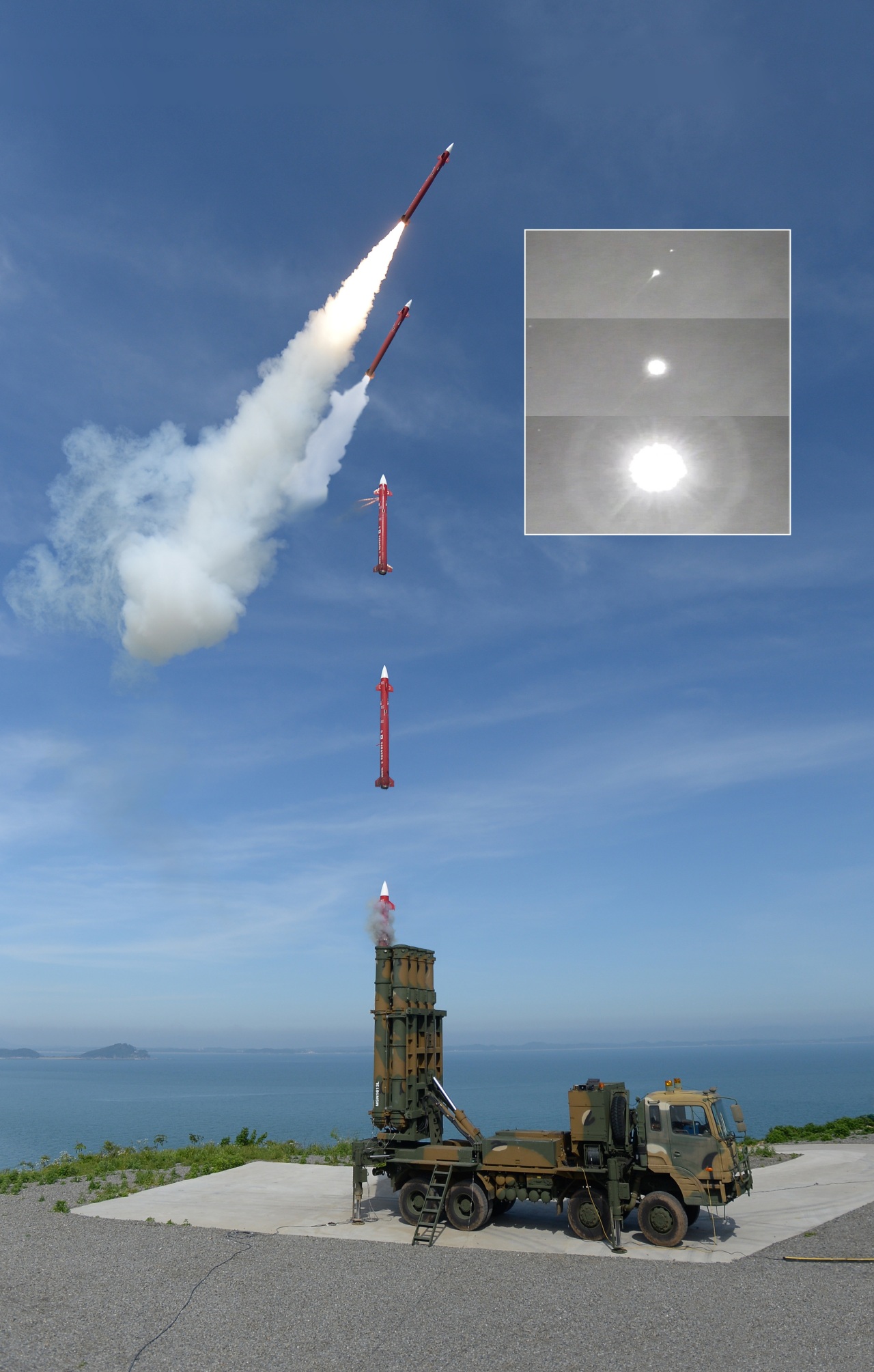 |
Cheongung series revealed by South Korean weapons maker LIG Nex1. (LIG Nex1) |
The United Arab Emirates said Tuesday that it will buy mid-range missiles from South Korea in what would be Seoul’s largest arms sale worth nearly 4 trillion won ($3.5 billion).
“We have reached very advanced stages in negotiations with the Korean side and are close to concluding a final agreement in this regard,” said Tariq Abdul Rahim Al Hosani, CEO of Tawazun Economic Council. The body is the chief weapons buyer for Abu Dhabi.
The Middle East country would be the first to purchase the surface-to-air Korean missile overseas, known as Cheongung, which local reports there described it as one of the most advanced in the world that will improve the quality of the UAE’s missile defense.
South Korea’s weapons buyer said they will have to go over last-minute details, with one official saying the agency is optimistic about closing a deal.
The Cheongung series, deployed in 2015 to hit targets flying 15 kilometers high and below, complement Korea’s missile defense, through which a Patriot missile intercepts threats flying as high as 20 kilometers, while the Terminal High Altitude Area Defense system eyes targets at least 40 kilometers high.
The Chengung series comes in two versions – one for aircraft and the other for ballistic missiles. Abu Dhabi is buying the second version to bolster its air defense, though it did not elaborate on how many missiles it is bringing in to upgrade it.
A complete Cheongung battery comprises a transporter launcher carrying eight missiles with a flight range of 40 kilometers, radar and a command vehicle. The Cheongung series is believed to be able to withstand extreme weather conditions and electromagnetic interference.
The Cheongung reportedly outperforms the US-made Patriot system because it is quicker to aim at a second target after the initial fire.
Meanwhile, South Korea still faces protests over its decision to host the THAAD system, a US-made anti-missile system installed in April 2017 amid the growing missile threat from North Korea. Villagers living nearby say the radar poses health risks, but the military ruled the risk levels negligible.
The villagers now block the only road leading up to the battery site, preventing supplies such as food from reaching the Korean and American soldiers there. The US military used to send helicopters to deliver what the makeshift base needs, because Korea dragged its feet on approving a permanent US base.
At the time, China responded to THAAD with an economic retaliation, saying its powerful radar could be used to spy on the Chinese mainland. The Moon Jae-in administration was accused of folding to Chinese pressure when it said it would not expand the THAAD system.
Yoon Seok-youl, the main opposition People Power Party’s presidential candidate, has said he would reverse the Moon government’s policy when he wins election in March next year, noting that South Korea is free to run the system as it sees fit.
The missile system is a matter of sovereignty and not a provocation to China, Yoon said.
By Choi Si-young (
siyoungchoi@heraldcorp.com)








